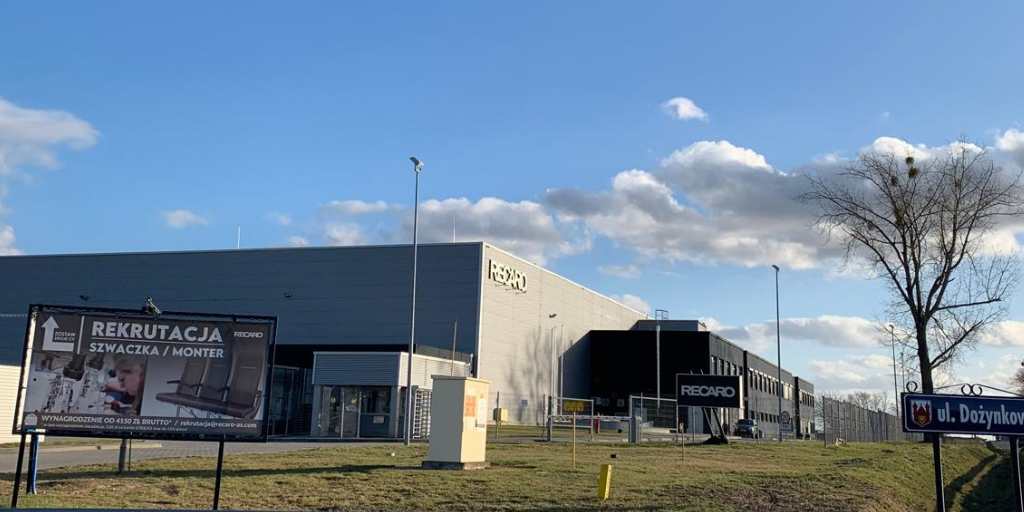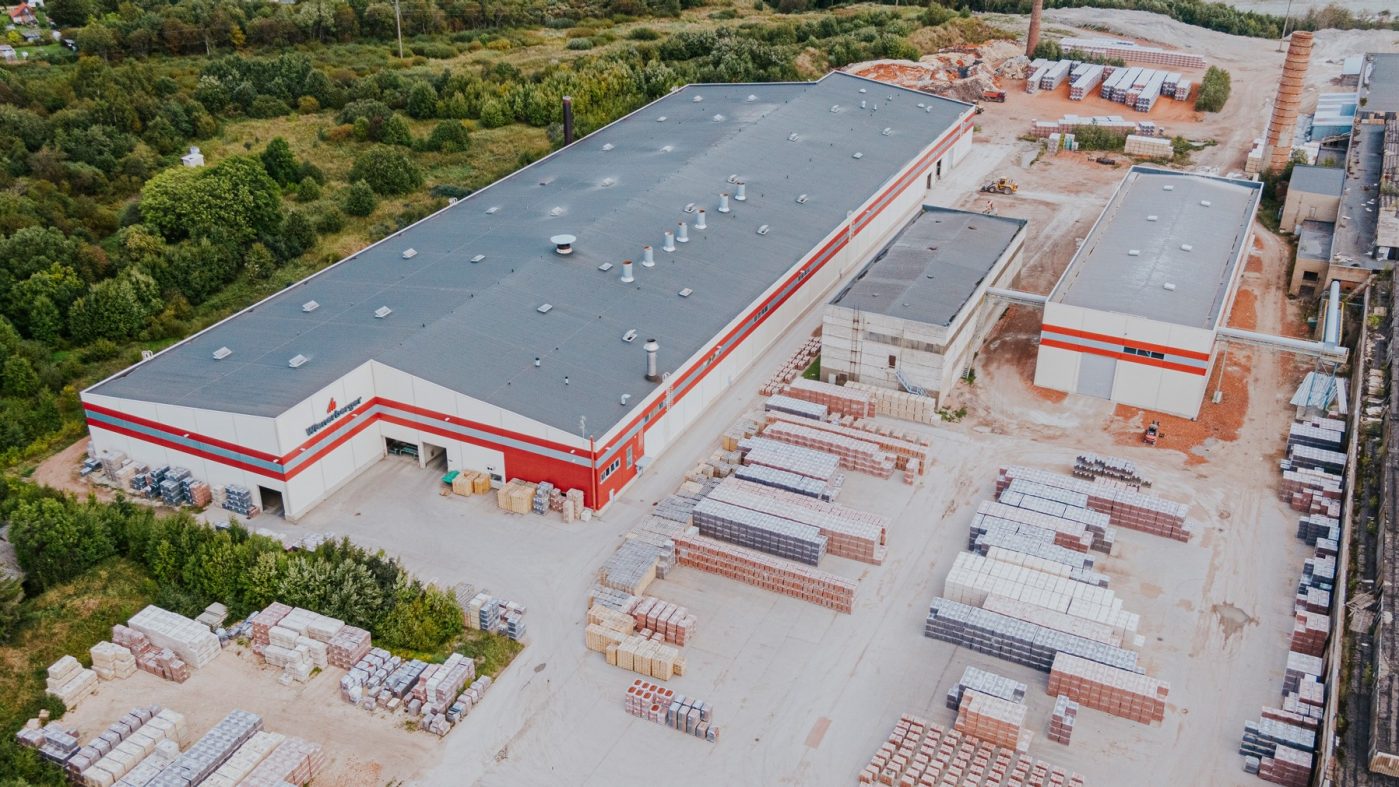Recaro Work standardization is not documentation – it is a process of teaching and engaging people in the organization. This article describes the case study of Recaro Aircraft Seating Polska, a manufacturer of aircraft seats.
Introduction to Recaro Work Standardization
Recaro’s journey with Training Within Industry (TWI) began in 2019, when management, driven by curiosity, attended a training session in Wisla. The goal was to get familiar with the method and determine if it could be useful. We quickly realized that TWI could become a strong alternative to our existing training system, which we had been using for nearly ten years.
The decision to implement TWI made sense. However, soon after, the COVID‑19 pandemic forced us to pause all plans due to uncertainty in the aviation industry.
By December 2021, we revisited the idea of implementation. The timing was critical – we were preparing to expand hiring, which meant onboarding large numbers of new employees. Traditional training methods were lengthy and complex, relying heavily on experienced operators rather than structured instructions. Each trainer taught differently, and knowledge transfer varied depending on who was conducting the training. Training a new employee took three months.
The challenge was amplified by high turnover in the labour market after the pandemic, particularly in our location (Swiebodzin, Lubusz region), where cross‑border work opportunities and strong local competition exist. These issues became the driving force behind the TWI program, which promised to help us overcome them.
Project Objectives
The TWI implementation project was designed as a one‑year initiative, formalised through a sponsorship contract signed with the CEO of Recaro Polska. The contract included an assessment of the current situation, internal and external challenges, and measurable goals prioritised by management:
- Reduce human errors leading to scrap by 25%.
- Reduce human errors leading to rework by 25%.
- Reduce non‑productive training hours by 30%.
The document also defined the project team, meeting frequency, and reporting structure. The sponsorship contract became both a starting point and a reference for tracking progress.
Specifics of Recaro’s Processes
The aviation industry is heavily regulated, requiring extensive documentation to ensure product safety. Line operators must consult multiple documents, including technical drawings, to complete their tasks. This requires broad knowledge not only of the job itself but also of how to read documentation.
Operation times vary between 7–20 minutes, depending on complexity. Each airline customer has unique requirements, creating enormous product variability. Even within one aircraft type, multiple seat configurations must be produced.
This complexity made work standardisation essential for effectively onboarding new employees.
In the first phase, pilot areas were selected across all departments: assembly, packaging, sewing, machine operation, and warehouse (goods receipt).
Implementation Roadmap
The implementation began with a cycle of information sessions for all company levels. A critical element was change preparation, which included:
- Sponsorship contract
- Current state analysis
- Pilot area selection
- Defining performance metrics
- Appointing the implementation team
- Choosing change ambassadors among production employees and leaders
This structured approach accelerated implementation and minimised resistance to change through communication and involvement.
Preparing TWI Instructors
Together with the HR department, we selected future TWI instructors. Each candidate completed a four‑day training programme in TWI Job Instruction and TWI Job Relations, followed by instructor certification. Certification confirmed their ability to create job breakdown sheets and conduct training using the TWI method.
Certification and Creating Instructions
The certification process launched actual implementation. TWI instructions were developed, and trial training sessions were held using the new methodology.
A TWI Training Centre was established within production, where new employees now take their first steps. Regular meetings with instructors and supervisors helped solve emerging problems and plan further training. Work standardisation ensured consistent knowledge transfer.
Changes to the Skills Matrix
The TWI programme led to significant changes in the employee skills matrix. Previous training timelines and skill classifications became outdated. Updating the skills matrix naturally led to changes in career paths and job assignments.
Since the company operates a paperless system (digital production documentation), adjustments were also made to align with TWI instructions.
In parallel, workplace optimisation projects were run. Both initiatives reinforced each other, as improvements from optimisation were immediately built into TWI standards.
Development Stage
Currently, the training process is stabilised and continuously improved. We work with instructors and training plans based on monthly reports. Training times have already been reduced by half. TWI instructions and workplaces are regularly standardised to achieve even better results.
Sustaining the System – Recaro Work Standardization
Implementation was only the beginning. Sustaining the system became the true challenge. Based on our experience, several key elements proved essential:
- TWI Centre – dedicated production area for onboarding and training core repetitive operations.
- Audit system focused on support and improvement: 5Q (post‑training employee), 10Q (area), 20Q (instructor).
- Skill Matrix aligned with TWI.
- Job steps and key points based on TWI.
- Monthly training plans tied to hiring needs.
- Weekly instructor meetings.
- Performance monitoring (training time, number of instructions, number of trainings conducted).
Leading Change – People at the Core
People are the critical element in any change. The way the team is selected has a major impact on success. At Recaro, the project leader was a safety specialist. The team included managers, engineers, and change leaders, while the sponsor was the CEO of Recaro Polska.
TWI touches many areas of the company, and interpersonal skills of the project leader became the driving force behind change. Clear communication and awareness‑building across the organisation led to engagement and ownership of TWI.
Challenges – Recaro Work Standardization
After years of training under the old method, where trainers simply supervised employees, the new approach initially faced resistance. Some employees were reluctant to change.
To demonstrate commitment, senior management led by example – the production director and CEO personally underwent TWI training for a production task. This symbolic act showed support and boosted credibility.
Another challenge was maintaining and updating instructions to keep up with process changes. We are currently testing solutions to improve instruction control and updates.
Initially, TWI was isolated from workplace optimisation projects. Only by integrating both initiatives were we able to create a unified system focusing on standardisation and training.
Results and Benefits in Recaro Work Standardization
The TWI programme at Recaro delivered measurable results:
- 50% reduction in training time for new roles and positions.
- 20% fewer human errors leading to scrap.
- 25% fewer human errors leading to rework.
- 20% lower training costs.
- Improved training process – employees gained stronger skills and greater job awareness.
- Higher flexibility – more employees able to work across multiple stations.
- Increased job referrals through the employee recommendation programme.
Most importantly, we spend far less time “firefighting” and more time focusing on strategic improvement. TWI has become a cornerstone of Recaro Polska’s management system, helping us achieve both operational results and long‑term company goals.

Process Engineer in the Production Preparation Department, working at Recaro for 2 years. Member of the TWI project team and a certified TWI trainer. Coordinates daily operations and supports instructors in assembly, sewing, and warehouse areas. Responsible for certifying new instructors. Specializes in continuous optimization of production processes, production line balancing, tool purchasing, and implementing employee suggestions.

Beata Waśko – a Health and Safety enthusiast, graduate of the Main School of Fire Service in Warsaw and the Faculty of Mechanical Engineering at the University of Zielona Góra, as well as numerous courses and trainings. She follows the principle of working in line with her own conscience, staying open to people and all kinds of innovations. Occupational Health and Safety should be promoted and associated with good, human-friendly solutions.

Training Within Industry and Lean Management Practitioner.
He is a lecturer at the WSB University in Wrocław. He is the author and co-author of several pieces of literature on the TWI program.
He is a managing partner in the LeanTrix company and a master Trainer for Europe. Additionally, he is involved in projects such as eTWI System and Lean Community
He has run projects for: Lotte Wedel, Danone, Kompania Piwowarska, eobuwie.pl, Arvato, Whirlpool, B / S / H, Geberit, RECARO, Tenneco, Sumitomo Electric, Stadler, Vesuvius Poland









